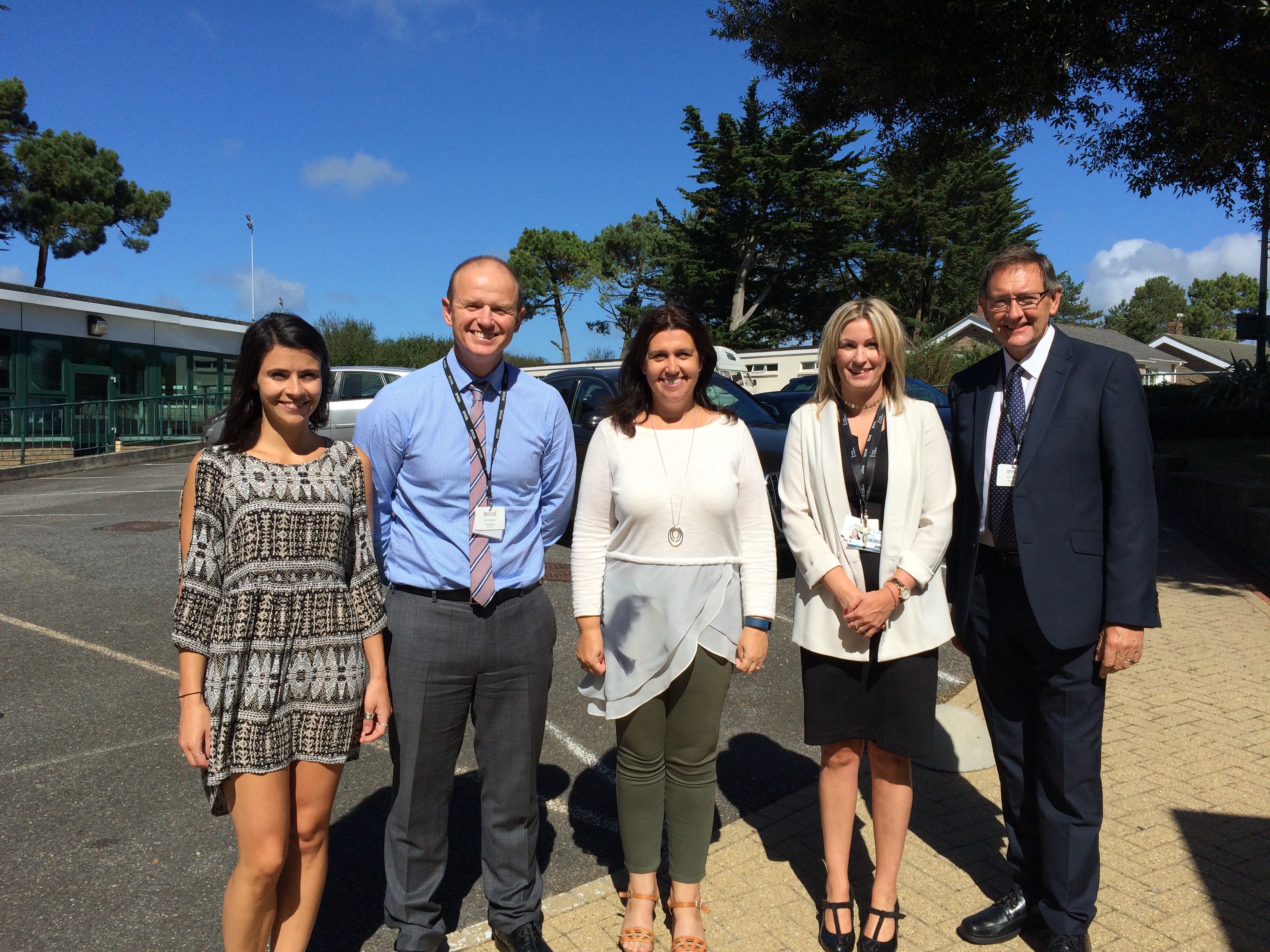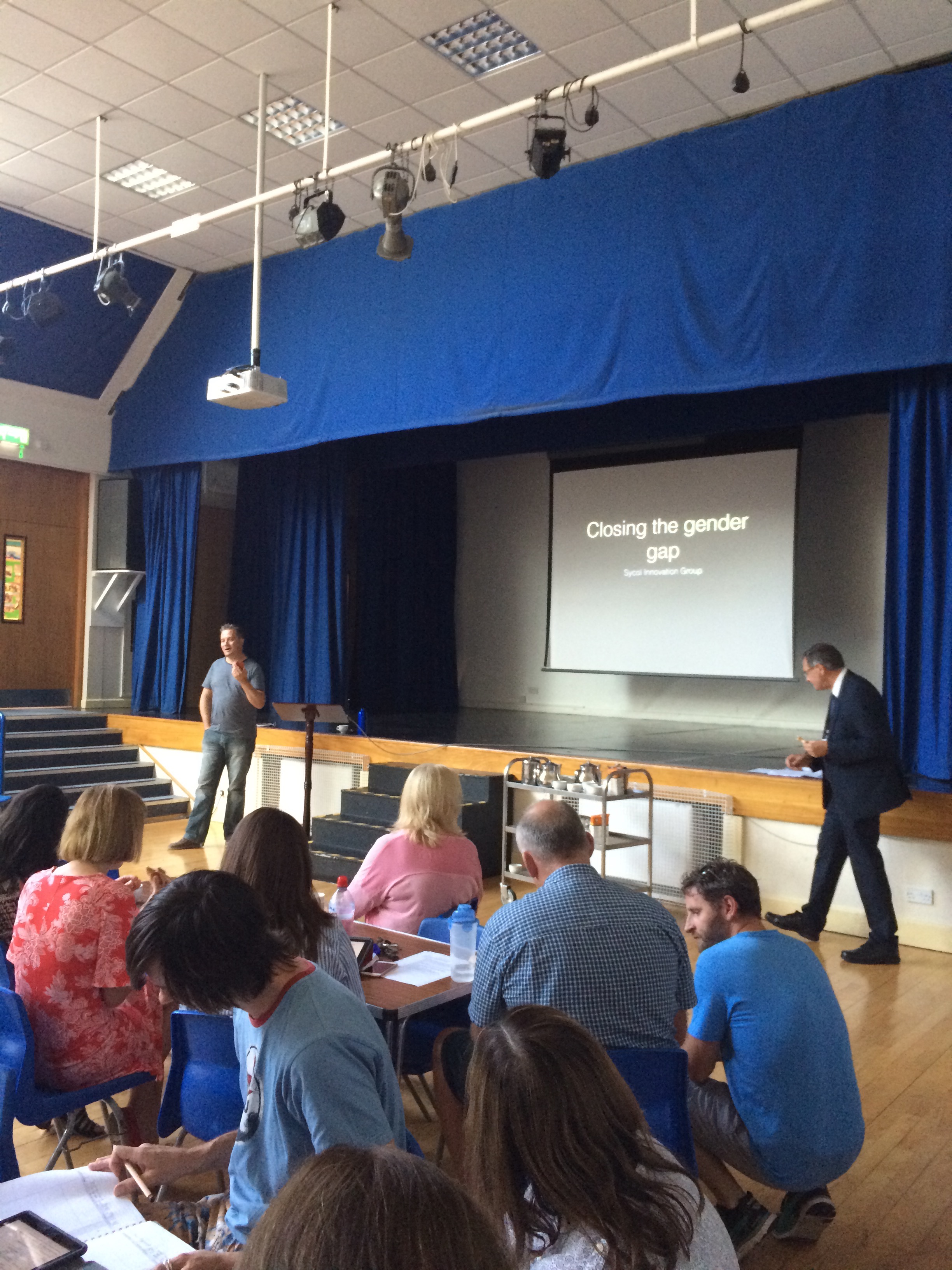In this series called “Climbing the Mountain”, I have already shared in Part 1 and Part 2 the beginning of our journey as a high school in building a culture of innovation and high-performance. Here, we continue with our climb…
Is there ever a school which cannot say, to one extent or another, that they are in a period of transition? It is perhaps very true that right now with new specs and curriculum to get to grips with, the vanishing of levels, another new education secretary and the never ending cycle of self-improvement, I think it’s pretty clear that we are all somewhere in the same boat.
Finding that foothold can be a challenge in the ever moving world of education and the day-to-day running of any school. If we are to climb the mountain, those first footholds need to have a firm base, which we can all step up to. Having the time to plan the route, to look at the terrain and to look through the quality of equipment needed for the ascent is a challenging task when there are so many influences on the time needed to dedicate to this properly.
Last week we had a chance to spend our inset day working on developing our core values and setting the scene for our innovation groups. We were joined in this day by Ioan from SYCOL and the headteacher and assistant head from Hope Academy in Newton in the willows. This is a school who have been working with SYCOL practises for a while longer than us and it really helped to see the journey they had been on; the routes taken and the incredibly impressive view from where they had reached. It inspired us all, helped us galvanise the importance of what we are trying to achieve with our shared vision and values. It was clear that Hope Academy had fully embraced the principles of the SYCOL philosophy and it has helped create a seismic shift in their progress to becoming a great school. Their values, their vision are placed at the heart of everything they do. It has helped to shape sky-high standards which the school shared with us through their inspirational videos about the life of the school. The head teacher told us where they had been as a school – a disparate and desperate mess which was harrowing to listen to. Slowly but surely, the emphasis of shared values has helped bring this school together. Their results, their recent OFSTED inspection are a great window in which to frame their journey of success, but it’s the stories they told, their shared experiences of leading this expedition as well as walking every mile with their community which tells me what an extraordinary impact the SYCOL work is having in their school.

Leads from the Hope Sycol Team working with Ioan and members of the Les Quennavais team
Their experience also made me realise how important this work is. We cannot postpone meetings or shift momentum between what we know is important. This work has to be at the centre of what we do. Our decisions for everything should hang on the values and principles we now share. They should be the mirror we hold up to see if what we are doing is working and how it reflects what it is we want to become.
For this to work, the leads need to share a common approach to what we do, how we present and how we support our staff. This has been a missing part of the ascent. Due to the ever changing landscape of the curriculum and of examinations, the team have not had the opportunity to build these common approaches. I personally felt the day exposed us to the importance of this as for all staff to be on board, they need to know that which ever innovation group they are in, they are being given the same vital messages of what it is we are trying to achieve and how we are going to achieve it.
After listening to the journey of Hope (no pun intended) we broke into our innovation groups. We are focusing on some heavyweight issues, which if we crack, we should write a book! Lower attainers, behaviour for learning and boys achievement are our three areas of focus.

Innovation teams go to work at Les Quennavais
After the innovation team meetings, we spent some time looking at how our core values look from a departmental level. This was a hugely important. For staff to own the values, they need to consider what those values from the viewpoint of their subject, classroom and pedagogy. Departments were asked to fill in ‘Thinking Squares’ which are designed to get departments to think on a fundamental to conceptual level. Departments had to give their own definition of the word for their subject. Secondly, what might we see in the classroom of that department to reflect that value, from environment, to interaction, to marking, to expectations for and of learning. And finally, how do schemes of work in that subject reflect those values? By engaging in this discussion it allowed staff to share understanding and relate the values to what we do every day and what we may need to do to instil those values into our community. The whole staff now have access to what each department has written. It’s beginning to look like an inspiring document, but inspirational documents mean little unless we start to see those shared discussions lifted off the page and practised week in week out until they become ‘just the way we do things here’.
The foothold is strengthened, the route is looking a little less challenging and I think we all finally realise, the view from the top will be magnificent.
Read Part 1 of the story
Photograph by Mathias Jensen All rights reserved/copyright unsplash.com

